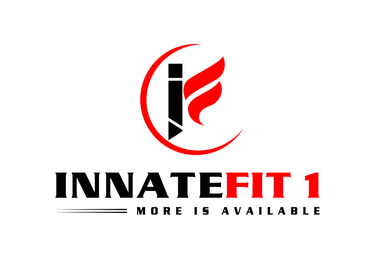Visit Innatefit1.com for exercise wear and equipment!!!

20 Common Mistakes Beginners Should Avoid When Starting Their Fitness Journey
Discover the 20 common mistakes beginners make when starting their fitness journey and learn how to avoid them. Equip yourself with essential tips for a successful and sustainable workout routine.
Joseph Battle
7/20/20244 min read


Understanding and Setting Realistic Goals
Embarking on a fitness journey can be an exciting yet challenging endeavor. One of beginners' most critical steps is setting realistic and achievable fitness goals. A common mistake many newcomers make is setting overly ambitious goals without considering their current fitness level and lifestyle. This often leads to frustration and the eventual abandonment of their fitness efforts. Therefore, it is essential to approach goal-setting with a clear and structured mindset.
To set yourself up for success, consider adopting the SMART criteria: Specific, Measurable, Achievable, Relevant, and Time-bound. Specific goals help you define precisely what you want to achieve. For instance, rather than aiming to "get fit," you might set a goal to "run a 5k in under 30 minutes." Measurable goals enable you to track progress, such as losing 10 pounds in three months. Ensuring your goals are Achievable is crucial; they should be challenging yet attainable based on your current fitness level. Relevance ensures that your goals align with your broader objectives and personal values. Finally, having time-bound goals establishes a clear timeline and fosters a sense of urgency and focus.
Patience and consistency are critical elements in achieving long-term fitness success. Expecting immediate results can be discouraging, as significant progress often takes time. Instead, focus on minor, incremental improvements, which can add to substantial changes over time. Breaking down larger goals into smaller, manageable milestones can help maintain motivation and make the process less overwhelming.
For instance, if your ultimate goal is to lose 50 pounds, start with a target of losing 5 pounds in the first month. Celebrate these minor victories to stay motivated and engaged. Regularly reassessing and adjusting your goals can help you stay on the right track. Remember, the fitness journey is a marathon, not a sprint. Consistent effort, realistic expectations, and a structured approach to goal-setting will pave the way to long-term success.
Avoiding Common Workout Mistakes
Embarking on a fitness journey can be exciting, but it is crucial to avoid common workout mistakes that can hinder progress or even lead to injuries. One prevalent mistake beginners make is overtraining. While enthusiasm is commendable, pushing the body beyond its limits can result in burnout and an increased risk of injury. To mitigate this, it is advisable to start with a balanced workout routine that includes a variety of exercises targeting different muscle groups. This approach not only prevents overuse injuries but also promotes overall fitness.
Another critical aspect often overlooked by beginners is the importance of properly warming up and cooling down. Skipping these essential steps can lead to muscle strains and decreased performance. A proper warm-up prepares the body for physical activity by increasing blood flow to the muscles, while a cool-down helps gradually lower the heart rate and prevent stiffness. Incorporating dynamic stretches in the warm-up and static stretches in the cool-down can significantly enhance workout performance and recovery.
Another common mistake during exercises is using incorrect form, which can have detrimental effects. Poor form reduces the effectiveness of the workout and increases the risk of injury. Beginners should prioritize learning proper technique and form, even if it means lifting lighter weights or performing fewer repetitions. Consulting with a fitness professional or personal trainer can provide valuable guidance in mastering the correct form, ensuring exercises are executed safely and effectively.
Neglecting rest days can impede progress and lead to overtraining syndrome. Rest and recovery are essential to any fitness regimen, allowing the body to repair and strengthen itself. Integrating rest days into the workout schedule helps prevent injuries and optimize performance. Active recovery, such as light walking or gentle stretching, can also be beneficial in maintaining mobility and reducing muscle soreness.
In conclusion, avoiding common workout mistakes is pivotal for a successful and sustainable fitness journey. By incorporating these practical tips and seeking guidance from fitness professionals, beginners can enhance their workout experience, achieve their fitness goals, and maintain long-term health and well-being.
Nutritional Pitfalls and How to Overcome Them
Embarking on a fitness journey often involves navigating the complex world of nutrition. Many beginners fall into the trap of following fad diets that promise quick results but fail to deliver sustainable health benefits. These diets can lead to nutrient deficiencies, making it challenging to achieve long-term fitness goals. Instead of chasing the latest diet trend, focus on a balanced diet that includes a variety of whole foods to ensure you get all the essential nutrients. Also, having a Nutritional planner to record your food and water intake is beneficial.
Another common mistake is not consuming enough nutrients. Many beginners either undereat or overeat, both of which can hinder progress. Undereating can lead to muscle loss and fatigue, while overeating, even if the food is healthy, can result in weight gain and other health issues. Finding a balance is crucial to understanding and monitoring your caloric needs. The right balance of macronutrients—proteins, carbohydrates, and fats—is essential for fueling workouts and recovery.
Micronutrients, though required in smaller amounts, are equally essential. Vitamins and minerals are critical in energy production, bone health, and immune function. A diet rich in fruits, vegetables, lean proteins, and whole grains can help meet these needs. Meal planning and preparation can be invaluable tools in maintaining a balanced diet. By preparing meals in advance, you can ensure you have healthy, nutrient-dense options readily available, thus reducing the temptation to reach for less nutritious alternatives.
Hydration is another critical aspect often overlooked by beginners. Water is vital for all bodily functions, including muscle performance and recovery. Aim to drink at least 8-10 glasses of water daily, and more if engaging in intense physical activity. Monitoring your hydration status can be as simple as observing the color of your urine—pale yellow generally indicates adequate hydration.
Consulting with a nutritionist or dietitian can provide personalized guidance tailored to your needs and goals. These professionals can help you create a sustainable eating plan supporting your fitness journey and overall health. By avoiding common nutritional pitfalls and focusing on a balanced, nutrient-rich diet, you can set the foundation for long-term success in your fitness endeavors.


Get It Here
